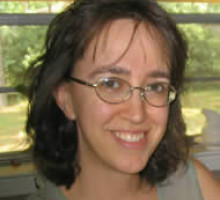
Reviews
Scholars interested in examining the contributions of 19th-century women writers to American literature will appreciate the fresh perspective offered here.
Radically expands the literary world of nineteenth-century American women, considering them in conversation with European women writers as well as male writers in Europe and America.
Boyd's close textual work gives the reader a valuable introduction to the work and lives of these four authors.
Boyd successfully reconstructs the era through an examination of the historical evidence, ranging from letters, diaries, reviews, essays, and literary social events, and close readings of the fiction of Alcott, Phelps, Stoddard, and Woolson to demonstrate that these pioneering artists took an active role in contemporary discussions on the nature of genius and art.
A comprehensively researched and impressively detailed study.
A highly satisfying analysis of the contexts within which women's literary ambitions shifted and the sensibilities of the male literary elite were forcefully challenged.
Boyd offers a multi-layered thesis in this important book.
Well written and appealingly produced, it is a thoughtful contribution to the field of late-nineteenth-century American literature and to the women, men, and above all institutions that produced it.
This book is an innovative and carefully-researched analysis of the trajectory of female authorship in the nineteenth-century United States. Focusing on four significant but undervalued writers, Anne Boyd draws on and then advances the 'separate spheres' approach to women's literary history during this period, challenging much of the received wisdom about this subject. Boyd's study of the careers, cultural contexts, and aspirations of Louisa May Alcott, Elizabeth Stuart Phelps, Elizabeth Stoddard, and Constance Fenimore Woolson is likely to stand as a solid historicist achievement for some time to come.
Book Details
Acknowledgments
Introduction: New Ambitions
1. Solving the ''old riddle of the Sphinx'': Discovering the Self as Artist
2. ''Prov[ing] Avis in the Wrong'': The Lives of Women Artists
3. ''The crown and
Acknowledgments
Introduction: New Ambitions
1. Solving the ''old riddle of the Sphinx'': Discovering the Self as Artist
2. ''Prov[ing] Avis in the Wrong'': The Lives of Women Artists
3. ''The crown and the thorn of gifted life'': Imagining the Woman Artist
4. ''Recognition is the thing'': Seeking the Status of Artist
Conclusion: The Question of Immortality
Chronology
Notes
Bibliography Essay
Index






